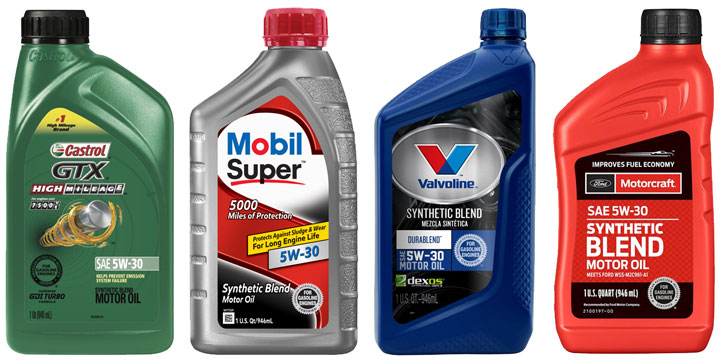Is synthetic oil really better?
Synthetic oil, a term frequently heard in automotive circles, has gained immense popularity in recent years. But is it truly better than conventional oil? Let's delve into the world of synthetic oil and explore its composition, benefits, common myths, environmental impact, and how it stacks up against conventional oil.
Composition of Synthetic Oil
Base Oils
One key factor differentiating synthetic oil from conventional is its base oil. While conventional oil is derived from crude oil, synthetic oil is made using chemically modified petroleum components or completely synthetic bases. This difference contributes to enhanced performance.
Additives
Synthetic oils are fortified with a variety of additives. These additives provide extra protection against engine wear, corrosion, and oxidation. They also play a crucial role in maintaining oil viscosity across a broad temperature range.
Benefits of Synthetic Oil
Improved Engine Performance
Synthetic oil's superior lubricating properties reduce friction and wear on engine components, leading to smoother operation and improved overall performance.
Enhanced Fuel Efficiency
The reduced friction in the engine also translates to better fuel efficiency. Vehicles using synthetic oil often experience increased miles per gallon compared to those using conventional oil.
Extended Oil Change Intervals
Synthetic oil typically lasts longer than conventional oil, allowing for extended intervals between oil changes. This not only saves time and hassle but also contributes to environmental conservation by reducing waste.
Common Myths about Synthetic Oil
Myth 1: Synthetic Oil is Too Expensive
While the initial cost of synthetic oil may be higher, the extended change intervals make it cost-effective in the long run. It's an investment in the health and longevity of your vehicle.
Myth 2: Only for High-Performance Vehicles
Synthetic oil benefits all types of vehicles, not just high-performance ones. It offers advantages such as improved cold-start protection and better overall engine cleanliness.
Myth 3: Not Compatible with Older Engines
Contrary to popular belief, synthetic oil is compatible with older engines. In fact, it can revitalize an older engine, providing better protection against wear and tear.
Environmental Impact of Synthetic Oil
Production Process
The production of synthetic oil involves fewer impurities and contaminants than conventional oil, making it a cleaner alternative. However, it's essential to consider the energy-intensive manufacturing process.
Disposal and Recycling
Proper disposal and recycling of synthetic oil are crucial to mitigate environmental impact. Many facilities now accept used synthetic oil for recycling, minimizing the risk of pollution.
Synthetic Oil vs. Conventional Oil
Viscosity
Synthetic oil maintains a more stable viscosity across a wide temperature range, ensuring optimal engine lubrication in extreme conditions. This is a crucial advantage over conventional oil, which can thicken in cold temperatures and thin out in heat.
Temperature Stability
Synthetic oil handles high temperatures better than conventional oil, reducing the risk of engine overheating. This makes it an excellent choice for vehicles operating in challenging climates.
Engine Cleanliness
Synthetic oil's detergent additives help keep the engine clean by preventing sludge and deposits. Conventional oil may struggle to provide the same level of cleanliness.
How to Choose the Right Synthetic Oil
Vehicle Requirements
Consider your vehicle's specifications and the manufacturer's recommendations when selecting synthetic oil. Different engines may have unique requirements.
Driving Conditions
For those in extreme climates or engaging in heavy-duty driving, choosing a synthetic oil with the right viscosity and additives is crucial for optimal performance and protection.
Tips for Using Synthetic Oil Effectively
Proper Oil Change Procedures
Follow the manufacturer's guidelines for oil change intervals and procedures. Regular maintenance ensures the continued benefits of synthetic oil.
Monitoring Oil Levels
Keep an eye on oil levels and address any leaks promptly. Maintaining the correct oil level is vital for the health of your engine.
Real User Experiences
Testimonials
Users often report improved engine performance, fuel efficiency, and extended engine life after switching to synthetic oil. Personal experiences highlight the tangible benefits.
Case Studies
Explore case studies showcasing the positive impact of synthetic oil on various vehicles, providing real-world evidence of its effectiveness.
Conclusion
In conclusion, synthetic oil offers a myriad of benefits, including improved engine performance, enhanced fuel efficiency, and extended oil change intervals. While myths persist, the environmental impact is generally lower, and the advantages over conventional oil are clear. Consider making the switch for a smoother, more efficient engine.
FAQs
- Is synthetic oil suitable for all vehicles? Yes, synthetic oil benefits a wide range of vehicles, not limited to high-performance ones.
- Does synthetic oil really improve fuel efficiency? Yes, the reduced friction in the engine leads to enhanced fuel efficiency.
- Is synthetic oil more expensive than conventional oil? While the initial cost is higher, the extended change intervals make it cost-effective.
- Can synthetic oil be used in older engines? Absolutely, synthetic oil is compatible with older engines and can provide revitalizing benefits.
- How often should I change synthetic oil? Follow the manufacturer's guidelines, but generally, synthetic oil allows for longer change intervals.




Comments
Post a Comment